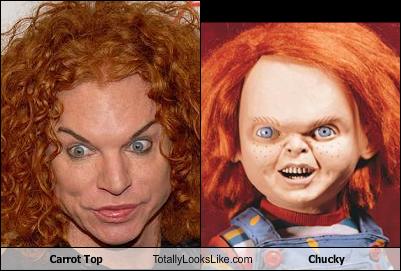 The Clarke-Waterland duel went on for many, many pages in several books, getting increasingly snippy.
The Clarke-Waterland duel went on for many, many pages in several books, getting increasingly snippy.
Last time I said that I thought Waterland was a social-mysterian-trinitarian. But I’m not so sure about the “social” part! He’s very unclear on whether the “Persons” are selves. They’re different somethings, in any case. But in this series, I’m sticking to an exegetical issue.
Here are excerpts of Waterland’s second salvo about the “only God” texts.
[Clarke] had produced John 17:3, 1 Cor. 8:6, Eph. 4:6, which prove that the Father is styled, sometimes, the one God, or only true God; and that he is the God of the Jews, of Abraham, etc. I asked how those texts proved that the Son was not? You say… “very plainly… Can the Son of the God of Abraham (Acts 3:13) be himself that God of Abraham, who glorified his Son?” But why must you here talk of that God, as if it were in opposition to this God, supposing two Gods; that is, supposing the thing is question. …I tell you that this divine Person is not that divine Person, and yet both are one God… (A Second Vindication of Christ’s Divinity in Waterland’s Vindications of Christ’s Divinity, 422-3, original italics, bold added, punctuation slightly modernized)
This is wheel-spinning. Clarke does, and Waterland does not take the passages in question to identity (assert to be numerically identical) the Father and Yahweh.
Clarke had asked whether Waterland thought that the term “Father” in these texts actually includes, i.e. refers to, the Son as well. Waterland clarifies,
…we do not say, that in these, or the like instances, both persons are included in the term Father; but that the exclusive terms, alone, or only, are not to be so rigorously interpreted, as to leave no room for tacit exceptions. To make this a little plainer to you.
Rev. 19:12 it is said to the Son, “He had a name written, which oudeis, no person, knew but himself.” This was not said in opposition to the Father, or as excluding him from that knowledge; for, it is still tacitly supposed, that he knew as much as the Son… (A Second Vindication of Christ’s Divinity in Waterland’s Vindications of Christ’s Divinity, 424, original italics, bold added, punctuation slightly modernized)
Clarke pounds the table, insisting that if something is the only F, then there can’t also be other F’s. This is correct, and yes, it is obvious.
But Waterland is also making an important point, though he’s unable to put it clearly. This is that quantitative statements (all, none, at least one, exactly one, etc.) are always relative to some domain of entities, and this is almost never explicitly stated.
Thus, one may truly say: “There is only one redhead” when one is assuming the domain: kids in my class. Of course, it’s false that there’s just redhead in all the universe. But when the teacher asks, “How many red-haired children are here?” it is clear that the domain in which we’re quantifying is: kids in this class. So Waterland’s point is that not all quantification has to be universal, i.e. within the domain of all things whatever, a wholly unrestricted domain. So there can be “exceptions” to true “only” statements. But here’s where he’s muddled. They are not exceptions at all to the assertion, when they are outside the assumed domain.

Thus, in our classroom scenario, if a kid yelled out “What about Carrot Top?” he’d be missing the point. That is not an exception to the truth “There is only one redhead [in our class].”
And in the Revelation passage, the assumed domain should exclude the Father. There’s a background assumption, Waterland correctly points out, that God knows all. And so, if Christ is the only one who knows the name given to him, this must be the only one in the domain including all intelligent beings other than God.
Waterland thinks that Clarke cannot allow these sorts of “exceptions” to only-statements, and so will have trouble interpreting various passages.
But Clarke can and does. (e.g. There’s nothing God didn’t create – Clarke doesn’t think this implies, absurdly, that God created himself.) It’s just that in these instances, in the three passages above, unlike the cases Waterland gives, he’s assuming an unrestricted or maximal domain – that is, that the Father is the only God period – not the only God in Romania, or the only God out of this set: Jimmy Carter, Yahweh, Mickey Mouse, Zeus, Hera, Elvis.
Now, concerning this issue, either Clarke or Waterland is correct; the three texts above either do or do not assume a universal domain. We’ll return to this point eventually.
In the next post, I’ll try to parse some points Waterland makes about the Father “emphatically” or “primarily” being called “the only God.”
The post DANIEL WATERLAND ON “THE FATHER IS THE ONLY GOD” TEXTS – PART 2 appeared first on Trinities.